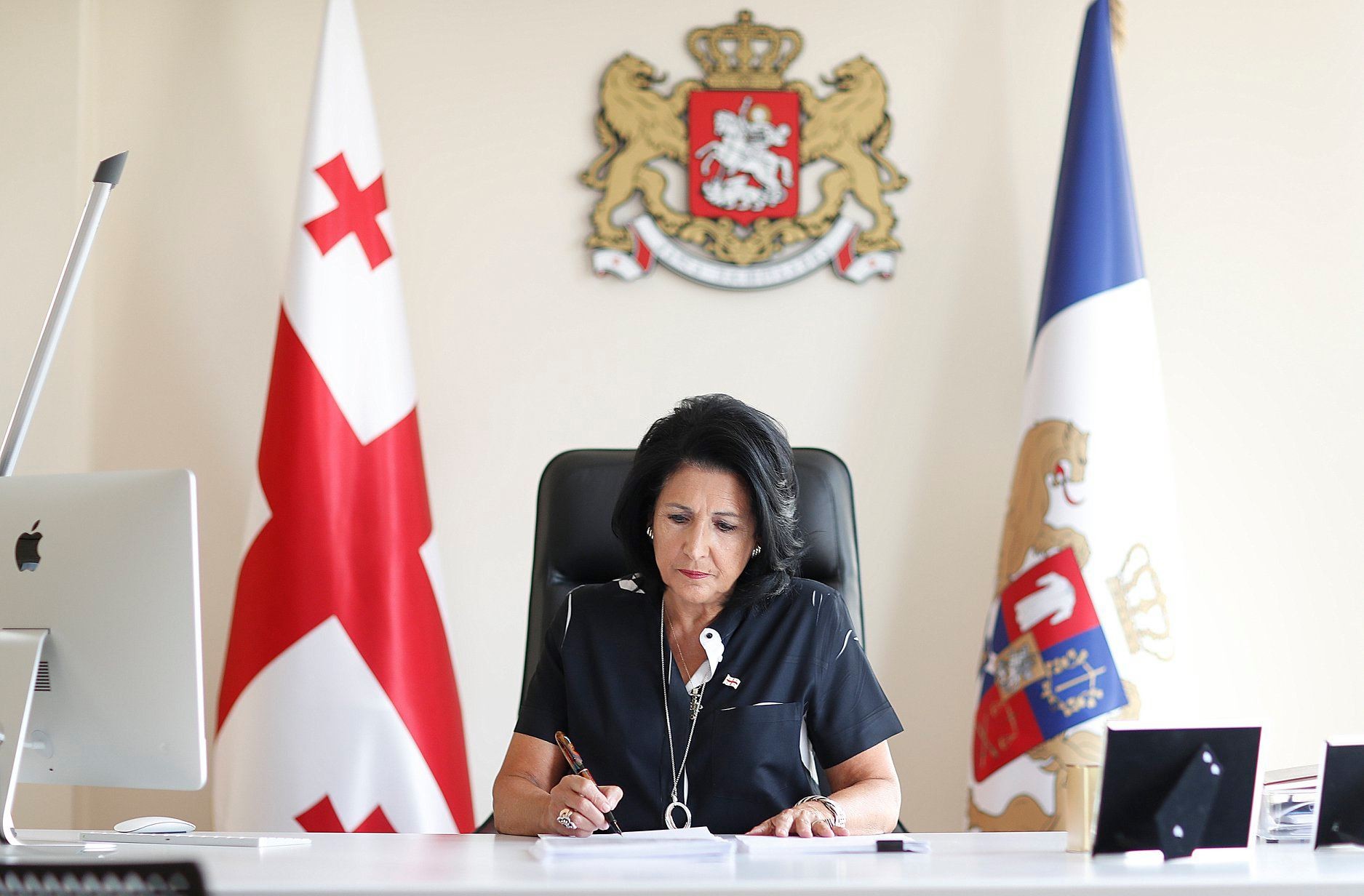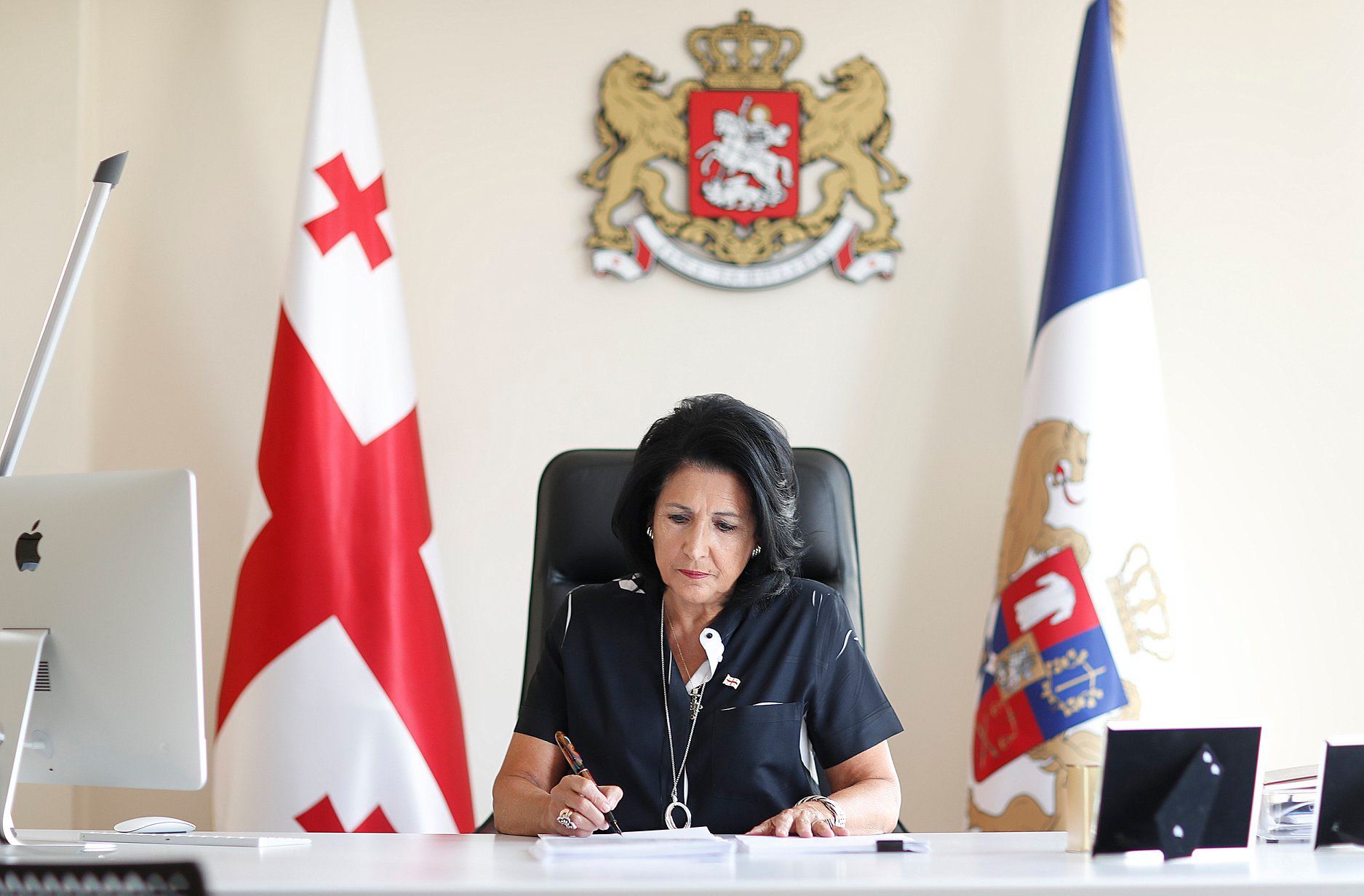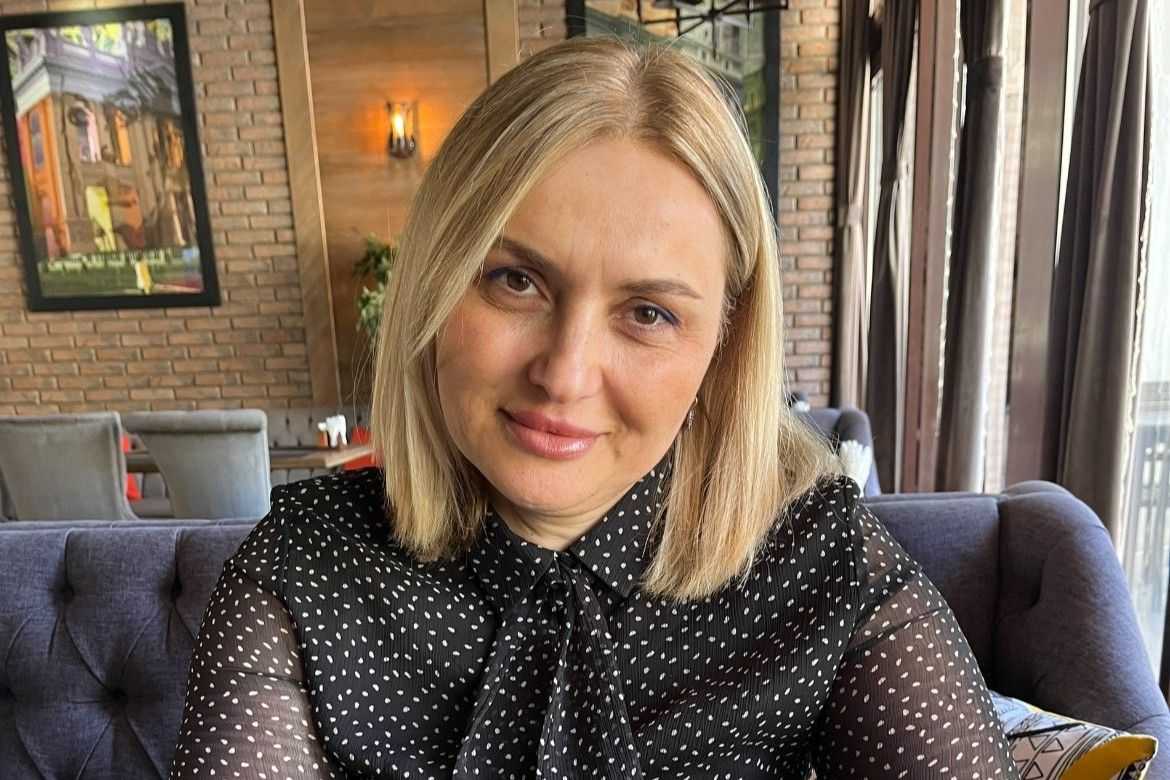

Georgian President Salome Zurabishvili has declared a moratorium on her presidential authority to pardon prisoners until parliament legislates new rules for pardoning procedures.
She announced the move on Wednesday morning, following public outrage over her decisions to set free two prisoners convicted for murder.
On 27 August, the Presidential Administration announced that Zurabishvili had pardoned 34 prisoners. Among them were Aslan Bezhanidze, who killed an 18-year-old man in 2004, and Ramaz Devadze, who killed a police officer in 2014.
The murders
Tarash Mukbaniani, a 22-year-old police officer, was murdered by Devadze in December 2014.
According to official reports, the officer, who was off-duty at the time, had called on Devadze’s accomplice, who was harassing foreigners in a restaurant, to calm down.
Devadze reacted aggressively to the request and together with an accomplice attacked Mukhbaniani, beating him for several minutes. Afterwards, Devadze took Mukbaniani’s gun and shot him dead.
Devadze was sentenced to 12 years in prison but had served just four before being pardoned on 28 August.
Davit Otkhmezuri, 18, was fatally stabbed in October 2004 by Aslan Bezhanidze during a brawl over a mobile phone. It took investigators 12 years to solve the case.
Bezhanidze was arrested in March 2016.
He was initially found not guilty by the city court and the court of appeals but was was imprisoned following a guilty verdict from the Supreme Court, which sentenced him to nine years in prison.
Due to the 2012 amnesty law, his punishment was reduced to 6 years and 9 months. He was among 34 prisoners, pardoned by President Zurabishvili on 28 August.
Hard questions
‘Why did they free Tarash Mukbaniani’s murderer? How did Ramaz Devadze serve the country to earn this [his freedom]? What did he do for Salome Zurabishvili? Does this government serve Georgia or criminal gangs?’ Nino Odisharia, Mukbaniani’s aunt told RFE/RL’s Georgian Service on 29 August. ‘I want Ms Zurabishvili to answer my questions.’
Speculation in the media and online was rife with questions over the president’s reasons for pardoning a man convicted of murdering a police officer.
Initially, the President refused to explain herself. ‘I will definitely not tell you why I pardoned him’, Zurabishvili told Imedi TV 29 August. ‘This is the discretionary right of a president and every lawyer or non-lawyer knows this.’
To date, Zurabishvili has pardoned 91 prisoners.
Zurabishvili has been critical of the pardons issued by her predecessor, saying that they looked more like a ‘mass amnesty’ and therefore contained ‘certain risks’ for society.
In March 2019 she suggested placing the Presidential Pardon Commission, whose members she dismissed after coming to power, under the auspices of the Justice Ministry, with the final decision over pardons still left to the President based on the commission’s recommendations.
However, the necessary legal amendments were never made. Currently, the pardon commission, while still existing on paper, has no members and does not function.
On 18 September the minister of justice Tea Tsulukiani said in an interview with the Public Broadcaster that the president should decide whether she actually wants a commission or not. If not, ‘strict criteria must be put in place, determining in what cases a president can pardon prisoners’.
‘Serial Pardoner’
On 18 September, after the Presidential Administration announced a briefing where a representative was due to speak, Zurabishvili decided to make a statement herself.
Meanwhile, a group of protesters gathered outside the presidential residence wearing masks from the 1996 Hollywood serial killer horror film ‘Scream’. They dubbed Zurabishvili the ‘Serial Pardoner’.
Zurabishvili came under criticism from both the ruling and opposition parties. Newly appointed Prime Minister Giorgi Gakharia said that though pardons were made at the president’s discretion, ‘pardoning the murderer of policemen or murderers in general, pardoning those convicted of committing severe crimes, is absolutely unacceptable’.
Georgian Dream MP Nino Tsilosani suggested on Facebook that the members of the pardon commission be sacked in response to the outcry, despite the commission being inactive and no longer having any members.
Oto Kobakhidze, an MP from the opposition European Georgia party, called for the Prosecutor’s Office to look into any possible connections between the president and the legal counsel or relatives of the pardoned prisoners.
He said there should be an investigation into the latest pardons to examine how they were chosen and whether there were any signs of nepotism, corruption, or other illegal acts.
‘If there is any evidence of criminality in [the pardons], the parliament should immediately commence an impeachment procedure’, Kakhidze said.
What next?
‘I would like to address the public, because I understand their concerns and this is my concern as well when the public is anxious about my decision’, Zurabishvili said in a press briefing on Wednesday.
She said that a presidential pardon did not equate to an acquittal or a revision of a court’s decision. Instead, she said, it was the ‘subjective, personal decision of a president and under her responsibility’.
‘This is an assessment of circumstances by the person who also happens to be the president and it doesn’t rule out [the possibility] of making a mistake. Neither does it rule out [the chance] that someone might have a different opinion on the circumstances’, Zurabishvili said. ‘That is why I suggested last year that the procedures [of presidential pardons] be revised by parliament.’
She announced that the moratorium on pardons would stay in place until parliament established new procedures. According to her, a cross-party parliamentary working group would start work on the reforms next week.
‘I made the decision, and I take the responsibility upon myself,’ she said.









